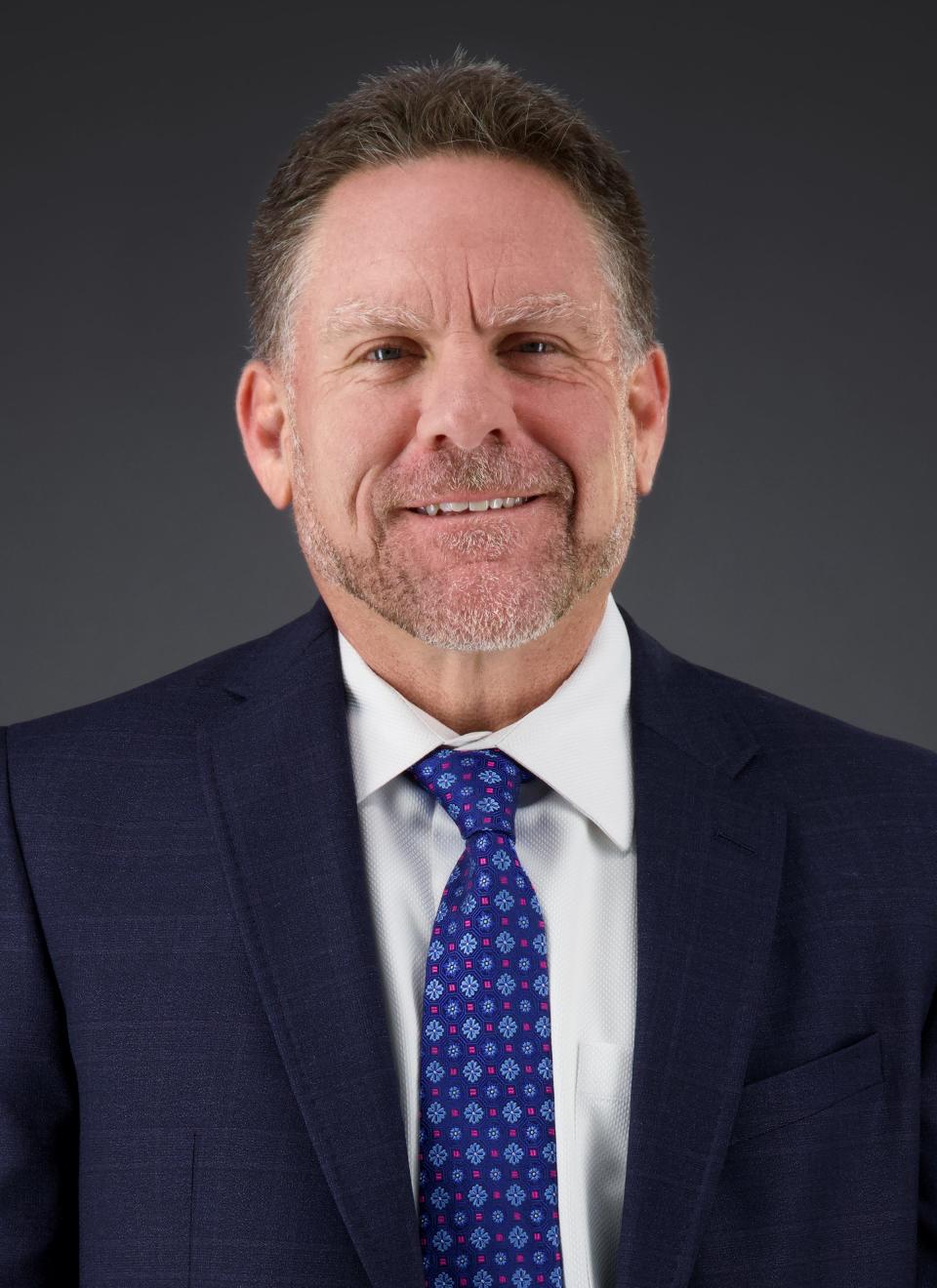Head of quasi-public Columbus development arm made millions - even after leaving post

A quasi-public nonprofit operation created and controlled by the city of Columbus and Franklin County made annual payments to its executive director averaging $1.19 million over a five-year period ending in 2022 including a $1.86 million payout in 2018, federal disclosure forms show.
The operation is technically two separate nonprofits, Capitol South and its sister operation Columbus Downtown Development Corporation, which share a common board and executive staff. Together they paid former President and CEO Guy Worley $1.11 million in 2022 and $890,332 in 2021 — despite him leaving the job in March of 2021.
The nonprofit agencies together employed 44 people in 2021.
By comparison, Columbus Mayor Andrew J. Ginther is paid $221,032 a year to oversee about 10,000 city employees. And JP Nauseef made $611,854 for the tax year ending June 2022 for leading Jobs Ohio, the quasi-government nonprofit in charge of leading economic development efforts for the entire state.
Worley's pay — even in retirement — dwarfs what the CDDC hands out in grants to beautify Downtown in the summer, such as through landscaping and flower-planting, and to support certain programs. The CDDC reported in 2022 those distributions totaled $663,000 — or about $447,000 less than it paid Worley that year.
The two local organizations' federal financial disclosures, Form 990, are currently only available through the end of calendar 2022. The CDDC said it has not continued paying Worley past 2022. The 990 form for 2023 likely won't be available until late this year.
Worley couldn't be reached for comment. The disclosure forms state that he was paid a salary of $250,088 through May 31, 2021, and then "entered into a separation agreement" that thus far has totaled $1.75 million.
Worley's separation pay dominated the organization's executive payroll schedule, taking in almost a third of what the CDDC and Capitol South paid its top executives and directors in 2022.
The $1.86 million the operation paid Worley in 2018 included $850,000 in deferred compensation granted from previous years, the 990 shows. Even so, the actual payout amounted to about $35,770 per week in 2018.
The 2018 windfall, according to the 990, was from the vesting of a 457B retirement plan created in 2013 that resulted in the "recognition" of $1.01 million in wages. The organizations had contributed a final $150,000 to the plan in 2018, and then immediately began another account with a fresh $100,000 contribution that Worley would collect in the future, they reported.
The CDDC and Capitol South paid Worley in 2008 — the earliest year with a comparable 990 format — $339,400, about $495,000 in today's dollars. His pay grew to more than $600,000 in 2015 and topped $770,000 in 2017 before the 2018 windfall.
Benchmarking compensation
Alex Fischer, longtime former head of the business-oriented Columbus Partnership who also joined the CDDC board in 2021 and took over as chairman in early 2023, said "Guy has not had a continuing role with the CDDC since that time," but was still being paid "retirement and deferred compensation."
"As a best practice, our board does national and regional benchmarking of executive compensation for similar organizations with similar assets under management including the scope of development responsibilities," Fischer said in an email.
The two organizations listed net assets of about $140 million at the end of 2022, mostly in land and buildings, and total expenses of about $31 million.
In 2022, the CDDC listed receiving $9.8 million in "government grants" and $8.55 million in "government contracts" in revenue.
Agencies created to serve the public
Capitol South was created in 1974 with a civic goal of redeveloping the area south of Capitol Square that became the now torn-down City Center Mall. Capitol South's 990 says its mission is "to serve a public purpose" by improving urban conditions and eliminating blight.
The CDDC's original 2002 incorporation papers on file with the Ohio Secretary of State explain it exists "exclusively for charitable and educational purposes" in conducting redevelopment and economic development activities using both public and private funds.
Both organizations' incorporation filings said no part of earnings "shall inure to the benefit of "any private person, including directors or officers, with the exception of paying "reasonable compensation for services rendered." The CDDC's mission statement is to work on strategic plans "promulgated by the mayor and City Council." Former Columbus Mayor Michael B. Coleman created it.
When asked by The Dispatch if he was aware of Worley's compensation and if he felt it to be reasonable, Ginther responded through his spokesperson Robin Davis: "Your questions should be directed to the (CDDC) board. Mayor Ginther does not vote on board actions."
When The Dispatch replied that Ginther nominated two-thirds of what then constituted the 11-member CDDC board in 2021, Davis replied: "Your questions are for the board. I recommend you reach out to them."
Today the board has 13 members.

Departure came amid board transition
Coleman, now a City Hall lobbyist, didn't return a telephone call left with his office. He was nominated to the board by Ginther and appointed by City Council in early 2021, in what was a large transition for the organization. Ginther replaced five city-appointed board members to "realign" the development group as the city's Downtown recovered from the COVID-19 pandemic, a city spokesperson said at the time.
Coleman was named board chair and then left the board at the start of 2023, according to a spokesman.
"It’s only through a visionary board of directors, community leadership and strong public-private partnerships that we’ve been able to change the face of Downtown Columbus," Worley said in departing after 14 years.
Ginther credited Worley as crucial in the development of the Scioto Mile, Columbus Commons and the National Veterans Memorial and Museum, adding that he had left the organization in a strong position to shape the future of Downtown "through an equity lens."
Worley has long ties to Coleman, the city's longest-serving mayor. In 2017 and 2018, the CDDC reported having paid Ice Miller LLP, the law firm in which Coleman is a partner, a total of $405,309. Officials didn't respond when asked if that payment was for legal services performed by Coleman, or another of the firm's many lawyers.
In 2005, Columbus was abuzz about the high-altitude pay of Worley as a new City Hall staffer hired by then-Mayor Coleman. "Guy Worley, the former Franklin County administrator, makes $158,017" as Coleman's new chief of staff, wrote The Dispatch in 2005, noting that was $30,000 more than taxpayers paid Coleman as mayor at the time, and $46,000 more than Coleman's first chief of staff, Ty Marsh, who began in 2000.
New director hired with ties to the city
The newly seated board hired Greg Davies as executive director in mid-2021 to replace Worley. Davies was Ginther's former chief of staff who built the mayor's first cabinet in 2015. Before that, he had close ties to Coleman.
Davies had come to work for the city in 1999 from being a reporter at "The Other Paper," the irreverent weekly publication known for concert reviews and behind-the-scenes political takes. He became a public relations person with the city Utilities Department, before being launched quickly up the city's political ladder, with Coleman eventually naming him director of Public Utilities, overseeing 1,200 employees and $530 million budget, with a mission of "fixing the electric utility."
He served a 20-month stint with the Columbus Partnership starting in November 2019, before the CDDC hired Davies, paying him $140,940 for half of 2021, and $374,163 in 2022. Davies had a "balance due" of $384,297 on a loan from the CDDC for a "split-dollar" life insurance policy, according to the 990. The premiums are treated as loan, which is repaid by the proceeds of the policy upon death, it says.
Davies didn't make himself available to answer any questions about his views on how the organization's executive pay fits in with the mayor's equity mission. Neither Ginther nor Fischer would comment on whether Davies is or will eventually be paid a seven-figure salary, including deferred pay.
Columbus Council offers no reaction to salary
The Columbus City Council, which votes to appoint the city's CDDC board picks, had little reaction to the pay of its former director. The council does not have a seat or a direct vote on the organization, nor any role in personnel decisions, and "public tax dollars are not used for CDDC operating and personnel costs," spokesman Jose Rodriguez said.
The Franklin County Commission, which appoints one board member and that records indicate has donated at least $437,000 to the CDDC since 2021, issued a written statement through a spokesman: "The commissioners aren’t involved in contract negotiations or other personnel matters for Columbus Downtown Development Corporation employees, especially as the CDDC has its own revenue stream that is not made up of public funds."
The City Council routinely grants the organization large payments for various programs and projects. That included millions toward an ongoing $15 million renovation of the massively leaking Scioto Mile Fountain, which opened in 2012 but was in major disrepair within eight years, an installation overseen by the CDDC.
Its latest city task is overseeing detailed plans for a major new music hall for the Columbus Symphony Orchestra on city-owned land near COSI.
wbush@gannett.com
@ReporterBush
This article originally appeared on The Columbus Dispatch: Former CDDC director made millions even after leaving post in 2021

